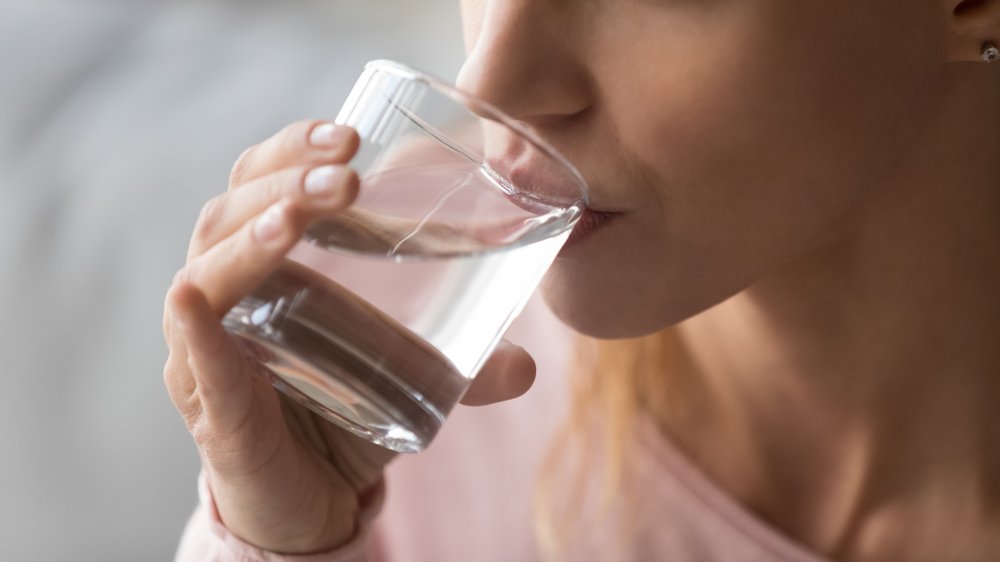The Real Reason You Shouldn't Be Dry Fasting
Over the past year, dry fasting has become the latest diet fad to take over social media. Said to be inspired by Ramadan religious fasting, dry fasting requires you to give up drinking H2O for a period of time, instead hydrating via the likes of select fruit and vegetables that are known to contain high contents of water (via Healthline). However, endless medical professionals have recently come out to say that dry fasting is not in any way safe. Here's why.
Nutritionist and registered dietitian Leslie Bonci told TODAY that dry fasting is "not healthy in any way, shape or form." She explained, "The biggest issue is the limitation on fluid. Hydration is absolutely essential." Registered dietitian Sarah Van Reit agreed, adding, "An adult body needs over 2,000 milliliters of water per day for just general healthy functioning, so to rely on fruit and vegetables to provide all the fluid that the body needs is not realistic."
Dry fasting can lead to dehydration
Without proper hydration, the human body has the potential to become dehydrated, and as Lisa Richards, CNC, a nutritionist and creator of The Candida Diet, pointed out to Healthline, "Dry fasting increases a person's risk for dehydration, which could lead to kidney stones, seizures, low blood volume and low blood pressure, electrolyte imbalance, and even death." Dry fasting could also make our bodies work much harder than they need to.
"Dry fasting would make it difficult for our bodies to complete daily tasks, such as flushing out toxins or helping nutrients enter cells," Aurielle James-Sarpong, RD, LDN, an outpatient oncology dietitian at the Cancer Institute at the University of Maryland St. Joseph Medical Center, warned Healthline. "Our kidneys, heart, lungs — and every other bodily organ on which we rely for normal, healthy living — would suffer greatly without adequate hydration," she continued.
Ultimately, we need water to survive. Giving up water or dry fasting could actually put your health and life at risk.

